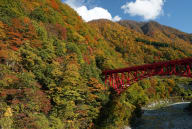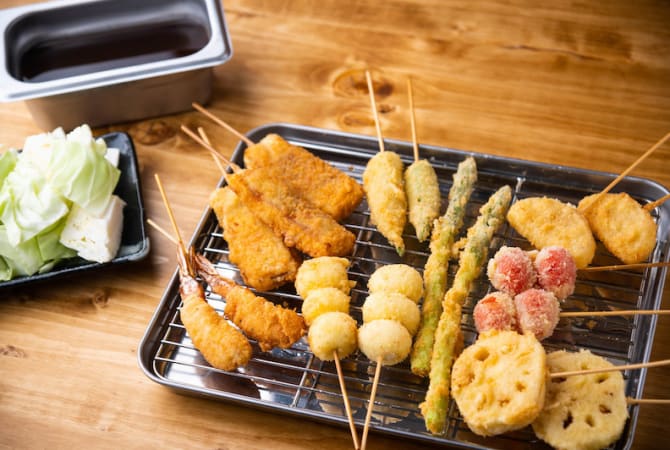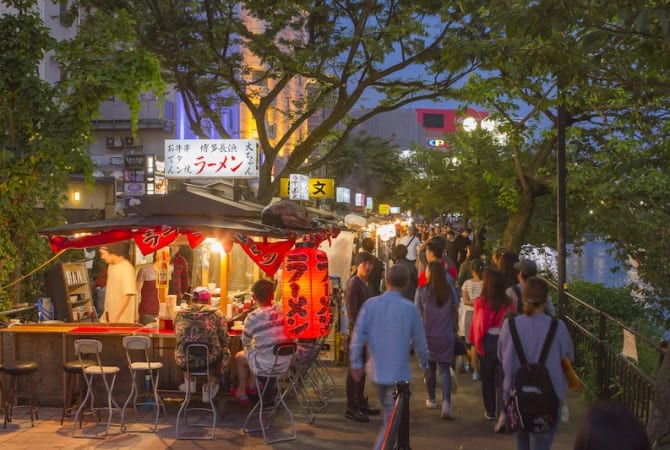7 Japan Travel Hacks to Stretch Your Budget
After over two years of waiting, these three words filled my heart with so much joy: Japan has reopened.
Ah, those sweet words! You see, no other country has fascinated me more than Japan. Since my first trip to Osaka back in 2013, I have set foot in Japan 17 times, making Japan my most visited country. That's an average of almost 3 trips per year, right up until my last in December 2019, just before the pandemic reared its ugly head and brought the world to its knees.
Now that Japan is once again opening its doors to independent tourists, many of us are giddy with excitement. Over the past weeks, just like in the pre-pandemic days, we have been receiving requests for Japan travel hacks. In this article, we're sharing seven practical tips that could hopefully help you make your next Japan trip hassle-free, budget-friendly, and worth the wait.
1. Travel in autumn or winter.
The calls of spring and summer are hard to resist. After all, when we think of Japan, the first images that pop up in our heads are probably those of dreamy cherry blossoms painting the town pink and lively summer festivals drawing crowds from around the world.
But if budget is an issue, consider off-peak seasons: autumn and winter. These periods are not as crowded and not as expensive, but they can still give you memories for keeps.

Autumn (September-October) is my personal choice. The weather is pleasant — neither hot nor freezing — and the fiery colors make for a dramatic backdrop and stunning scenery. Winter comes with some challenges, but it also has its perks. Flight and hotel prices go down. Establishments launch year-end and New Year sales. And as Southeast Asian travelers, the sight of snow makes our hearts flutter. Annual illuminations also make any attraction even more magical.
2. Consider off-the-beaten path destinations.
Tokyo, Osaka, and Kyoto make Japan's holy trinity of tourism. Of course, these big cities are on everyone's bucket list for a reason. But take a good look at other destinations, too. Our team has visited 28 prefectures so far, from the winter wonderlands of Hokkaido to the sunny beaches of Okinawa. We have found that Japan has several underrated destinations tucked in its many nooks and crannies. In many of these places, you'll have more purchasing power.

@tokyotower_official
Prefectures like Central Japan's Gifu and Kyushu Island's Saga have some of the lowest costs of living in Japan, but they are also bursting with stunning tourist spots and delectable cuisines.
Perhaps the place that surprised me the most was Tottori, Japan's least populous prefecture. From the picturesque Tottori Sand Dunes to the idyllic Misasa Onsen to its signature gyukotsu ramen, Tottori rewards travelers who go off the beaten path.
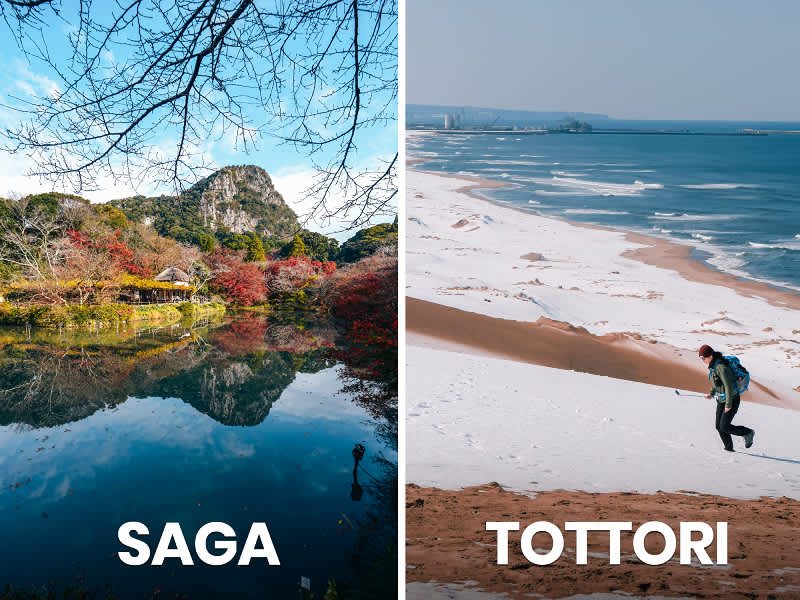
3. Book a place near a train station.
The price remains our primary consideration when booking accommodations. But location is a close second. Whether we're picking a hotel, hostel or an apartment, we try to find one that is close to a train station.

Japan has an extensive and expansive transportation system, and many attractions are within easy reach of train stations. In most cities across the country, train stations also serve as pickup and dropoff points for buses. While it can be difficult to find a place that is close to everything, having a train station nearby almost always guarantees easy access, be it by train or by bus.
Find a property that is within walking distance from the station. Japan is generally safe, so traveling on foot even at night is safe.
4. Take advantage of transportation passes.
Japan's transportation industry — including railways and bus lines — is highly competitive. It's no wonder you'll find a multitude of transportation passes. Consider city, prefectural, regional, cross-regional, and even nationwide passes, sold by different companies, each with its own pros and cons.
For example, the Kansai region has more than its fair share of these passes. Aside from Osaka Amazing Pass (city-wide), you'll also encounter Kansai-Thru Pass, Hankyu Pass, Hanshin Pass, Kintetsu Pass, and JR Kansai Pass!

Because of the sheer number of options, it can be difficult to sort through them and find the one that best suits your itinerary. But whatever it is, there's a big chance there's a pass out there that could be useful to you.
5. Consider overnight buses.
Tourists are drawn to Japan's trains and understandably so. The bullet train, for one, is quite impressive and an interesting experience. Plus, given the coverage of the country's railway system, it's easy to take the train as default and not consider anything else.
But buses may also be worth a look. For instance, when traveling from Fukuoka to Hiroshima, the bus is a much more affordable option. It takes longer, yes, but considerably cheaper.
If you're traveling longer distances, an overnight bus offers a number of benefits. First, the fare is significantly lower. Second, it also saves you from paying for one hotel night. Third, some bus routes can take you to places that are not yet reached by trains. Not to mention that Japan's buses are also quiet and comfortable.
6. Get lost in a supermarket.
One of the biggest chunks of your budget will be spent on food. While we encourage you to eat out and enjoy any destination's restaurant scene at least once, it's not the most economical way to go if you do it all the time.
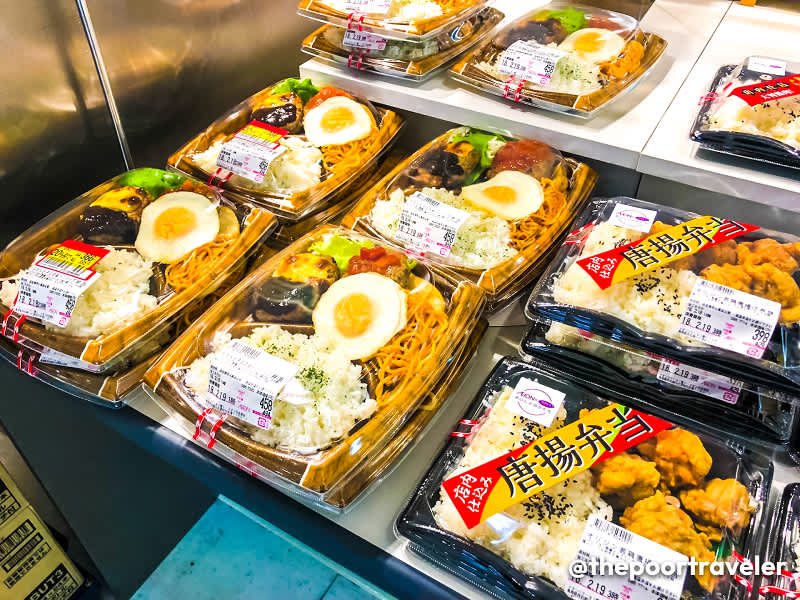
A visit to a Japanese supermarket is quite an experience, especially if you're a sucker for Japanese products. But more importantly, many supermarkets across the country also sell ready-to-eat meals at rates that are pocket-friendlier than restaurants and convenience stores. Moreover, at around 8 pm, just before closing time, many of these cooked meals will be put on sale. Establishments offer up to 75% discounts just to sell them all out.
One more thing: vending machines are ubiquitous in Japan — you'll spot them in many corners. They offer a convenient way to get your hands on a snack or drink, but these items are much cheaper if you get them from supermarkets instead.
7. Avail of tax-free shopping.
When shopping in Japan, don't forget to bring your passport. Foreign tourists can get a hefty discount if they shop at licensed shops, which can be found all across Japan. If your total one-time purchase amount reaches ¥5000, taxes can be waived.
Some shops, including the famous Don Quijote store chain, have separate counters for tax-free purchases. Use those counters, where a staff member will attach the receipt to your passport. You'll need to hand over this receipt before clearing Immigration checks at the airport on the day of your flight out of the country.
While Japan travel can be expensive in parts, there are also numerous ways to reduce costs. That said, if you can afford it, allow yourself to experience the best that the destination has to offer. Fancy a dinner at a popular sushi restaurant? Go for it! Is skiing your childhood dream? Book that snow resort! Never tried an onsen before? Dip in! Again, only if your budget permits. It's also a great way to help the local economy.
For the best possible experience, don't forget the most important tip of all: Have fun. Whether in Japan or in any other country, decide to enjoy and make the most out of your stay by being more open to different cultures, cuisines, and ideas. Regardless of the destination and budget, only you can make any moment memorable and any trip worth it.
About the author

Yosh Dimen is an award-winning writer and is one-half of The Poor Traveler, one of the top travel blogs in the world in terms of visitor traffic and social media presence. He has made 19 trips to Japan and visited 25 prefectures. Follow his adventures at @thepoortraveler.









































